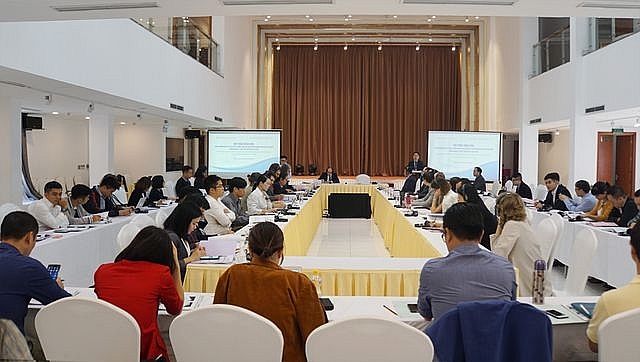Shaping EPR programmes to fit the face of Vietnam
 |
| Vietnam needs to customise its EPR programmes to fit its unique conditions |
This is the opinion of experts at the workshop on EPR in solid waste management which took place at the International Convention Center in Hanoi co-organised by the Ministry of Natural Resources and Environment (MoNRE) and Packaging Recycling Organization Vietnam (PRO Vietnam).
In general, the performance of EPR programmes in a particular country needs to reflect the country's specific needs, including important cultural factors governing individual attitudes to waste and the environment, and business attitudes to issues of social responsibility. However, part of the issue is that many developing countries are trying to apply the EPR model that was developed for and by industrialised countries.
So EPR programmes should be adjusted to the level of economic development, capacity for environmental policy, market structure for products and recyclables, and stakeholder interrelationship (central and local government, private sector, community, and the informal sector). Developing countries must therefore evaluate their capacity in light of resource needs and set priorities that reflect local and national characteristics.
Regarding voluntary and private initiative, in the past, companies had their own initiatives, and it was difficult for the government to discuss with each company because each of them was trying to do the best for the company. Now, the government is recognising 12 members of PRO Vietnam as a consultant in creating EPR regulations for Vietnam.
"“We are very happy to be a partner of the MoNRE and we are very proud of the ministry’s two departments, so we will help as much as we can. But, the regulations have to be made by the government, not the companies. Therefore, we want to help if they ask for help, we are very happy to support,” said Fausto Tazzi, vice chairman of PRO Vietnam.
"The MoNRE is in charge of creating EPR legislation with the objective similar to what happens in South Africa. We have been working a lot with partners and we got a lot of inspiration from South Africa. So, our objective is to resolve the two biggest problems in packaging. One is that packaging is not collected because most people are not segregated in classifying garbage, so collection would be the first level. The second level would be recycling activities. The ambition of PRO Vietnam is to create a system where people can recycle plastic, aluminium cans, and even carbon emissions in Vietnam," Tazzi said.
EPR is most commonly defined as “an environmental policy approach in which a producer’s responsibility for a product is extended to the post-consumer stage of the product’s life cycle.”
The application of EPR legislation not only shifts the financial burdens on public budgets and taxpayers to producers but also helps improve recycling and reduce landfilling. EPR has been widely adopted in most OECD countries since the 1980s as one of the key policies to respond to the challenges of solid waste growing in both volume and complexity.
What the stars mean:
★ Poor ★ ★ Promising ★★★ Good ★★★★ Very good ★★★★★ Exceptional
Related Contents
Latest News
More News
- Vietnamese businesses diversify amid global trade shifts (February 03, 2026 | 17:18)
- Consumer finance sector posts sharp profit growth (February 03, 2026 | 13:05)
- Vietnam and US to launch sixth trade negotiation round (January 30, 2026 | 15:19)
- NAB Innovation Centre underscores Vietnam’s appeal for tech investment (January 30, 2026 | 11:16)
- Vietnam moves towards market-based fuel management with E10 rollout (January 30, 2026 | 11:10)
- Vietnam startup funding enters a period of capital reset (January 30, 2026 | 11:06)
- Vietnam strengthens public debt management with World Bank and IMF (January 30, 2026 | 11:00)
- PM inspects APEC 2027 project progress in An Giang province (January 29, 2026 | 09:00)
- Vietnam among the world’s top 15 trading nations (January 28, 2026 | 17:12)
- Vietnam accelerates preparations for arbitration centre linked to new financial hub (January 28, 2026 | 17:09)

 Tag:
Tag:

























 Mobile Version
Mobile Version